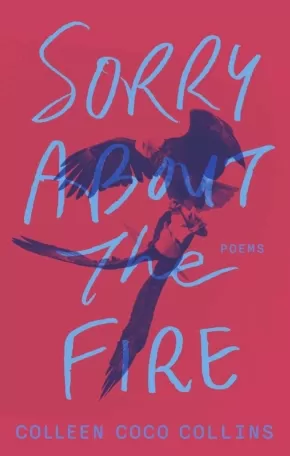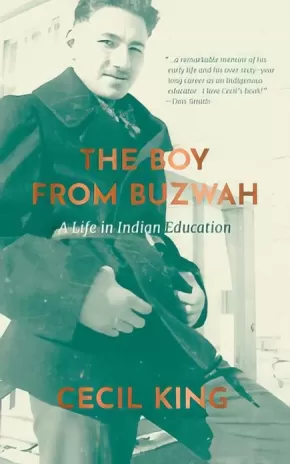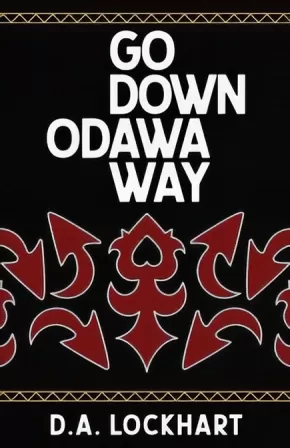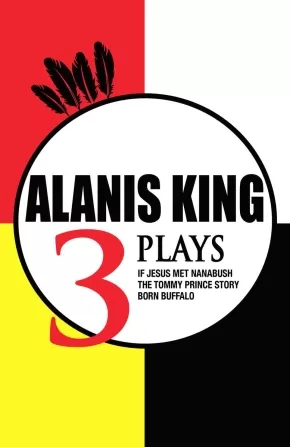Odawa (Ottawa)
Synopsis:
I wanted a good bewildering, / down deep, / as the keep of a castle.
With a voice as ungovernable and determined as Prometheus—who stole fire from Zeus only to face dire consequences—Colleen Coco Collins' debut poems are daring dispatches from beyond the margins: light-filled flares sent up from the edge of language, sentience, land, and story. Drawing on all of her multidisciplinary enamorations and rendered through the triple vision of her Irish, French, and Odawa heritage, Sorry About the Fire introduces not just a poet, but a stunningly original sensibility.
Reviews
"Fealty to the sentient. To every mostleast thing, to every impulse (sentient), gesture (sentient). Re-resourcing language to equip it to be fit: bawaajigan. telamon. mothaitheacht ... Collins' Sorry About the Fire is the story of a dark time, in which the strike of language on the texture of reality sounds a sharp off-note—and sparks; and/or the story of a light-drenched time in which a sensibility cracks open, beholding/becoming."—Luke Hathaway, author of The Affirmations
"Colleen Coco Collins employs vocabulary as a joyful precision tool, re-earthing the intimate relations between wonder, grief, and the more-than-human world. Embodying the playful and destructive energy of the cosmos, her poems vibrate like some kind of ancient, sacred rock & roll."—Shary Boyle
Additional Information
64 pages | 5.00" x 8.00" | Paperback
Synopsis:
Cecil King’s remarkable memoir, from humble beginnings on a reservation to his unparalleled legacy to ensure Indian Control of Indian Education in Canada.
“Through my eyes, my community was creative, innovative and self-sufficient. In this remote northern traditional First Nation society, the skills, knowledge and abilities that the community needed to survive were all there. . . . The stories are not just of survival and hardship but of the power of the human spirit and the sheer natural genius of individuals.” — Cecil King
Cecil King grew up in the small settlement of Buzwah, Ontario, situated on Wikwemikong Unceded Indian Reserve on Manitoulin Island. This moving memoir shares King’s life on reserve in the 1930s and ’40s and describes a vibrant community full of interesting characters who shared knowledge, warmth, affection, and humour. King also describes his experiences attending Buzwah Indian Day School and St. Charles Garnier Residential School.
After furthering his education, King returned home to Buzwah as a teacher. He quickly became disillusioned with the Ontario curriculum and how inadequately it resonated with on-reserve youth and the realities of Indigenous life. It was then that King began his unparalleled legacy to ensure Indian Control of Indian Education in Canada.
King helped create curriculum that connected to traditional Indigenous cultures and established First Nation language courses in elementary and secondary schools. Over the course of his fifty-year career in education, he would found the Indian Teacher Education Program at the University of Saskatchewan, become the first director of the Aboriginal Teacher Education Program at Queen’s University, and develop Ojibwe language courses across North America.
A remarkable story about a remarkable man, The Boy from Buzwah is a powerful testament to Dr. Cecil King’s work and legacy.
Reviews
“A poignant reflective must-read memoir of an Indigenous educator whose life lived was Indigenizing and decolonizing western academies.” —Marie Battiste, author of Decolonizing Education and Honorary Officer of the Order of Canada
“Miigwetch Cecil King, for sharing your remarkable journey and life in this essential book, which educators and learners will treasure. This is a book of extraordinary generosity and humility, and one that provides both context and direction for the future of Indigenous education.” —Jesse Wente, author of Unreconciled
“An essential account of an Indigenous scholar’s trailblazing and sweeping contributions towards restoring and inspiring indigenous control of indigenous education.” —Verna St. Denis, University of Saskatchewan
“Cecil King’s memoir is an important contribution to the Indigenous literature, documenting early life on the Wikwemikong Unceded Indian Reserve, disclosing the enduring roots of Odawa tradition, chronicling the re-emergence of Anishnawbe culture and the rise of Indigenous activism, particularly in the important area of Indigenous education.” —Hon. Leonard S. Tony Mandamin IPC, Justice in Residence, Faculty of Law/Faculty of Native Studies, University of Alberta
“Cecil King has written a remarkable memoir of his early life and his over sixty-year-long career as an Indigenous educator. The teacher, respected community leader, and post-secondary professor and administrator, argues most convincingly for a system of First Nations education that incorporates fully Indigenous history, culture, and present-day realities. I love Cecil’s book!” —Don Smith, Professor Emeritus of History, University of Calgary
"Cecil King's book about his experiences in a day school, residential school, the bureaucracy and institutional development on Indigenous education presents an important perspective in the debate on educational change in the past half-century. His personal perspective and his use of Ojibwe as part of this history introduces a new qualitative dimension to this debate." —Keith Goulet, former Minister of Northern Affairs for Saskatchewan
Educator Information
King was one of the first to create curricula designed for Indigenous children and education programs to train Indigenous teachers and to establish some of the first Indigenous language courses in North America.
King understood that strengthening students’ cultural identity was key to their academic success and saw how the Canadian curriculum was not designed to do this.
Additional Information
356 pages | 5.00" x 8.50" | Paperback
Synopsis:
Go Down Odawa Way is a poetry collection that explores the physical, historical, and cultural spaces that make up the southwestern traditional territory of the Three Fires Confederacy. This is the region currently inhabited by southwestern Ontario and southeastern Michigan. Individual poems and sections of this collection explore the documented villages, history, and mythologies of the Odawa, Ojibway, Huron/Wendat, and Pottawatomi nations that were lost to the process of colonization and relocation. The project speaks to the history of the region that predates contemporary Canadian and American borders and namings as well as carves out a history that extends back past the mere couple of centuries of European colonization. The narrative focal point of the pieces find their roots in the traditional Lenape vantage point of the author and seeks to draw on the experiences of a modern day urban Indian in connection with the manner that land has changed with non-Indigenous settlement and those that inhabit it.
Additional Information
76 pages | 5.50" x 8.50" | Paperback
Synopsis:
This long—awaited first collection by playwright and director Alanis King presents three exciting plays interconnected by themes of hope: spiritual (If Jesus Met Nanabush), personal (The Tommy Prince Story) and cultural (Born Buffalo).
When Jesus turns up at the Champion of Champions Pow—Wow, the first person he meets is Nanabush. Together they form an odd pair. Nanabush is earthy, irascible, fun—loving. Jesus is formal, introverted, a fish out of water. However, as they venture across the back roads, bars and bus depots of Turtle Island, the two will discover that they are not so different after all.
Merging Native and Western traditions, If Jesus Met Nanabush is a thought—provoking and often hilarious cosmological First Contact story. The Tommy Prince Story an emotionally charged drama that brings to light the incredible life and times of the great Saulteaux warrior. As Drew Hayden Taylor concluded: "This is Alanis at her finest."
The final play is the lively Born Buffalo which will take the reader back into the mystical age of the buffalo alongside fraternal twins magically transformed into bison.
Additional Information
158 pages | 5.50" x 8.50"










